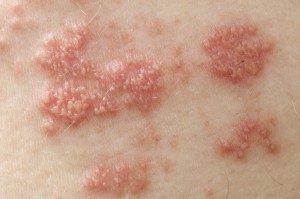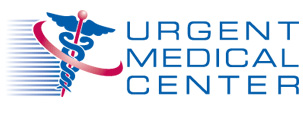 The Varicella Zoster Virus can be blamed for the painful, skin rash that constitutes shingles. If you had chickenpox as a child, the virus never completely went away; instead it lives dormant in your body until something wakes it up. Stress, aging, certain medications, anything that weakens the immune system can reawaken the chickenpox virus, causing you to get shingles. While shingles is not uncommon, patients still have many questions and uncertainties about the virus; here we provide answers to commonly asked questions about the shingles virus.
The Varicella Zoster Virus can be blamed for the painful, skin rash that constitutes shingles. If you had chickenpox as a child, the virus never completely went away; instead it lives dormant in your body until something wakes it up. Stress, aging, certain medications, anything that weakens the immune system can reawaken the chickenpox virus, causing you to get shingles. While shingles is not uncommon, patients still have many questions and uncertainties about the virus; here we provide answers to commonly asked questions about the shingles virus.
What Are the Signs and Symptoms Associated With Shingles?
The symptoms of shingles can come on slow, starting with a seemingly simple headache. Over time you will start to develop a stinging, tingling, or even itching pain on a certain portion of your skin. Shingles is reserved to one side of the body, either the left or right, and usually surfaces in one location, as opposed to all over the body. It might take a few days before a rash will start to appear in this location. The rash will then turn into blisters that are full of fluid and crusted over. The blisters take 2-4 weeks to heal, during which time a persistent itch may start to drive you crazy as your nerve endings heal. Refrain from itching, it won’t help; itching will only release histamine, increasing itchiness and your recovery time.
Some signs & symptoms you may have shingles include:
- Feeling like you have the flu without any sign of a fever
- Sensitivity to light
- Dizzy
- Drowsy/fatigue
- Blurred vision
- Distorted perception/ unable to properly process information
- Have a rash that spreads over one surface of your body
- Red or painful spots on your face
- Shooting pains affecting your skin
Is The Shingles Virus Contagious?
Shingles is not typically contagious and direct contact with the blisters caused by shingles is necessary for one to become infected. There is only a small chance of contracting shingles from someone else, either because you have never had chickenpox or the chickenpox vaccine.
Who Is Most Likely To Get Shingles?
You have the greatest chance of developing shingles if:
- You have never had chickenpox or the chickenpox vaccine
- If you have a weakened immune system from medications, stress, illness, or due to natural effects of aging
- You are over 50 years of age
- You are female—women are 60% more likely to get shingles than men
Can You Get Shingles More Than Once?
One in 3 people will get shingles more than once. The chance of getting shingles again is more likely if you experienced prolonged pain after your initial shingles outbreak. If you record 60+ days of pain after your shingles has healed, you are 5 times more likely to get shingles again. Despite popular belief, people with healthy immune systems make up the majority of repeat shingles cases (More Information)
If you are over 50 you can get a vaccine against shingles. While this vaccine can’t guarantee a shingle free existence, it will help reduce your chances of getting shingles, and reduce your associated symptoms if you do.
How Do You Find Relief From Shingles?
Shingles directly impacts and inflames the nerves on your skin, causing a unique feeling that is highly uncomfortable. Some patients describe shingles as one of the most painful viruses of their entire life.
Here are some ways to help relieve the pain associated with shingles:
Wear Loose Clothing:
You don’t want to wear anything that will irritate or rub the blisters. This will further irritate your skin, cause more inflammation, and prolong your discomfort.
Ice cubes:
Put ice cubes in a plastic bag and wrap in a paper towel, press against the affected area for immediate relief—the ice actually numbs the nerves to reduce itching and discomfort.
A cool bath:
This can also help relieve unbearable symptoms. Just like when you were a kid and had chickenpox, add some colloidal oatmeal to cold bath water to further soothe your irritated skin (See More)
If you don’t want to take a bath, soak towels in cold water and place over the affected skin. Make sure to use disinfected clean towels so that you don’t spread infection through any open blisters.
Treatment of Shingles: When Should You Visit Your Local Urgent Medical Center?
You want to treat shingles right away so that it does not develop into postherpetic neuralgia (PHN), a condition caused by nerve damage related to shingles. Long after the shingles rash disappears, those with PHN continue to experience painful, itchy skin. If you are under 50 years old your chances for shingles turning into PHN are low. About 1/4th of all adults over 60 who get the Shingles virus will develop PHN lasting over 30 days. In the majority of all cases, PHN goes away gradually and is completely gone within a year (More information)
Visiting your local Urgent Medical Center at the first signs of shingles can help prevent further problems. Our team of experienced doctors can provide a proper treatment plan that includes antiviral medications to help shorten your shingles outbreak and ease some of the associated discomfort.




